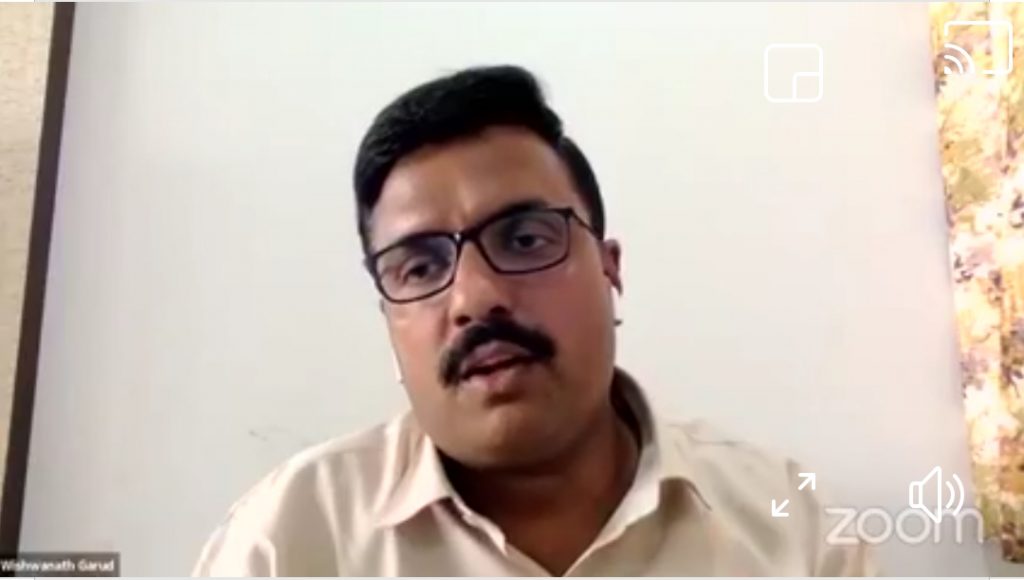- NIMCJ organised a Webinar on “Challenges of Digital Media Journalism”
- Expert Shri Wishwanath Garud Explained in & outs of Digital Media Journalism
“Digital journalism is mainly desk-driven” said Shri Wishwanath Garud. A senior digital media journalist from Pune. He shared his first hand experiences and challenges of digital media journalism in a webinar hosted by NIMCJ for mass communication students and journalists.
Citing the changing phases of digital media journalism from 2004 till date “when hardly any digital traffic was there now a days the digital traffic is bombarded by so many platforms that it poses many severe challenges in digital journalism” said Wishwanath. He further said that actual reporting in digital media journalism is almost missing. “In my opinion one must know reporting, feel the news from ground and establish contact with people”.
He said that Presently digital journalists gather news from all social media platforms and news channels and then post it. Generally this reporting is unverified even many sensitive information go live ununverified but at the same time the channel or website loses its credibility. “Digital media generally bound to unfollow the the ethos of a journalist. It is difficult to be neutral. Your survival is on the numbers of followers you generate through your traffic.One has to keep in mind how their digital content attracts Pro and against followers which is an apathy nowadays Many media houses are inclined towards this mindset.”
“Digital journalism is number driven. Quality content has to be the one that it is liked by the lower Strata of the society because they have spare time to watch, like and share the content. People who prefer quality has been found shifting over to OTT platform from other main stream media also” said Shri Garud.
While addressing other challenges of digital media journalism he said that 80% of digital traffic & revenu pie is consumed by Google and Facebook. This has generated a cutthroat competition amongst rest 20%. Even these 20% are also decided by these two digital giants only. This has various cascading effect in surviving of small digital media platforms.
He asserted that every content has to be user friendly so it can be viewed or consumed on mobile phones. (AIML) Artificial Intelligence and machine learning enables the app to monitor the content consumption of the user and accordingly he is bombarded by those information only.
He was concerned over lack of rules and regulations in digital media. However, the government has already started framing some regulation for posting any content on digital platform, some guidelines do exist but they do not prevent digital platforms from posting their own contents as per their choices.
Shri Garud emphasized- to survive against all odds a digital media journalist must know digital traffic management, page Optimisation, organic/ inorganic traffic, SEO, the revenue generation, free editing tools and many other issues relevant to digital communication.
“Although the challenges posed by the technology are very concerning but as a journalist it should be everybody’s endeavour to publish only authenticated news with all skills in hand. Digital media journalism appears to be lucrative but then it invites lots of hard work and dedication in addition to the the complete knowledge of social media and digital marketing.”Concluded Shri Garud.
Students of #NIMCJ & others who joined the discussion on Facebook live asked some interesting questions to the expert. The session was moderated by Director Dr Shirish Kashikar.
(Report courtesy: Rakesh chander,PG Sem- 4)

